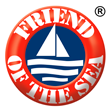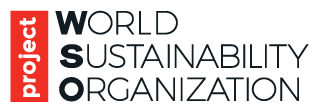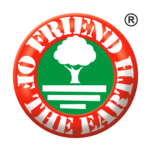Sustainable management of aquatic habitat, oceans, rivers and lakes has become a central issue for governments and international authorities worldwide. North Atlantic and Mediterranean Sea overexploited status makes the implementation of the EU Common Fisheries Policy Reform a must. Oceans and the way they are managed will also play a key role during next Rio de Janeiro Environmental Summit. An increasing number of aquatic species are endangered, biodiversity is threatened and illegal fisheries are still a major problem.
Oceans cover three quarters of the Earth’s surface, making up 97% of the Earth’s water. Over three billion people depend on marine and coastal biodiversity for their livelihoods. Oceans contain nearly 200.000 identified species and absorb about 30% of carbon dioxide produced by humans, buffering the impacts of global warming. Oceans serve as the world’s largest source of protein and the marine fisheries directly or indirectly employ over 200 million people.
40% of marine resources is endangered because of indiscriminate fishing and uncontrolled human activities causing pollution and deteriorating coastal areas. Scientists foresights warn about a future with no comeback but changes are still possible and all of us can contribute to improve the situation… starting with giving preference to sustainable seafood.
Friend of the Sea
Friend of the Sea (FOS) is a not for profit international organization which has developed the main certification program for products from sustainable fisheries and aquaculture. FOS motivates the seafood and omega-3 supplements industry to give preference to sustainable fishing and aquaculture practices. The NGO also promotes consumers awareness by eco-labeling those products which have been produced in a sustainable way.
The origin of Friend of the Sea
Friend of the Sea was founded in 2008 by Paolo Bray, on the wave of the tangible success achieved as European Director of the Dolphin-Safe program promoted by the Earth Island Institute (www.earthisland.org). The EII is an international organization based in Berkley (USA), with over 20 years experience in environmental certification of lower impact fisheries. The Dolphin-Safe Project (certifying tuna fished with no harm to marine mammals www.dolphinsafetuna.org) is considered the precursor of all other certification programs for sustainable seafood. Supported by 95% of the worldwide tuna industry, the project lead to major conservation achievements, such as a 98% reduction of dolphin mortality in tuna fishing in the Eastern Tropical Pacific.
Certification Requirements
Friend of the Sea Sustainable Aquaculture criteria take into account: water quality, which must be compliant with precise regulations; the reduction of escapes and by-catches to a negligible level; no use of toxic antifouling paints, growth hormones; compliance with waste water parameters and no impact on critical habitat (eg: mangroves, wetlands, etc).
Among the requirements for Sustainable Fisheries: the target stock cannot be overexploited, the fishing methods must be selective with a minimum of by-catch and discards and the fishing method must not impact on the seabed.
Companies also undergo audits for social accountability and energy efficiency.
Independent certification Bodies
Products and their origin are audited onsite by independent international certification bodies, (Bureau Veritas, CSQA, FCI, RINA and SGS), against strict Friend of the Sea sustainability criteria.
Third party certification is more and more required as standard worldwide. It means audit are carried out by independent bodies, making the certification process even more reliable.
Companies and certified products
Over 250 companies in 50 countries worldwide have relied on Friend of the Sea to certify the sustainability of the origin of their products. The Countries in which Friend of the Sea is more present are Italy, Norway, Spain, Switzerland, UK, Germany, USA, France, Sri Lanka, Philippines, Oceania, Peru, Chile, Morocco, Brazil. Artisanal and industrial fleets, small and bigger aquaculture plants have been audited and, when compliant with all requirements, obtained the Friend of the Sea certification. An estimated 40% of applications either do not qualify for audit (eg: because targeted stock is officially overexploited or data deficient) or else they do not pass the actual onsite audit (for non conformity with other requirements). Selectivity provides further assurance to consumers on the reliability of the certification. Nowadays 70 different species are available on the market with Friend of the Sea seal of approval.
Some of the major certified International companies in the Seafod and Omega 3 market are: Omega Protein, Marine Harvest, Norway Prawns, Calvo, Frinsa, Toralla, Gomes da Costa, Seacold, Clean Seas, Raptis, Generale Conserve (As do Mar brand), Agroittica Lombarda (major producer of caviar from harvested sturgeon).
Major retail chains and wholesalers carry the FOS logo on their private labels: Al Campo (Auchan Group), Aldi, Brakes Group, Dia (Carrefour Gruppo), Lidl, Metro, Waitrose, Coop, Conad, Esselunga, Cold Storage and Great Food Hall in Singapore and China.
Comment of Director and Founder
“We wish all consumers will rely more and more on Friend of the Sea label when they go shopping”, explains Paolo Bray Director of Friend of the Sea “Producers would be even more motivated to select implement sustainable fishing and farming practices. People can actively contribute to the preservation of the marine environment.Together we can all be
… Friends of the Sea”.



